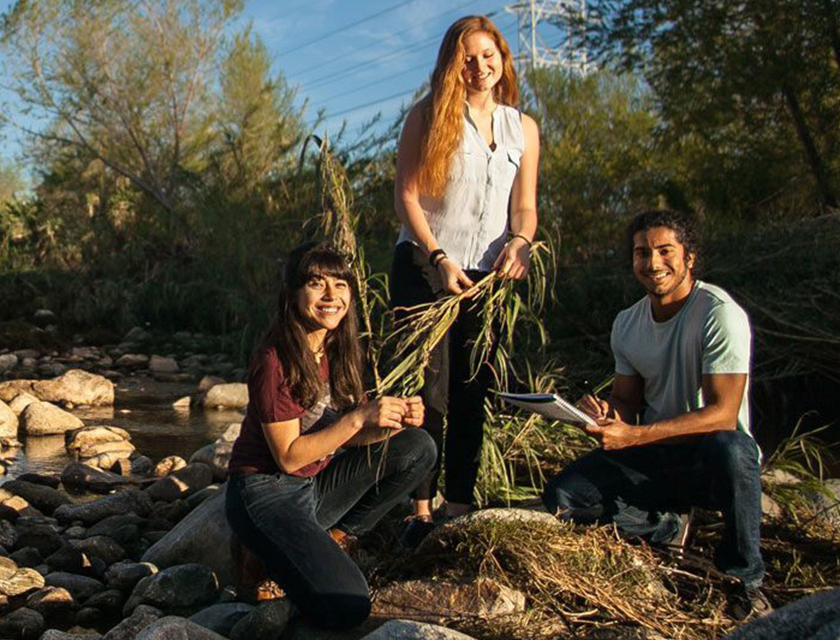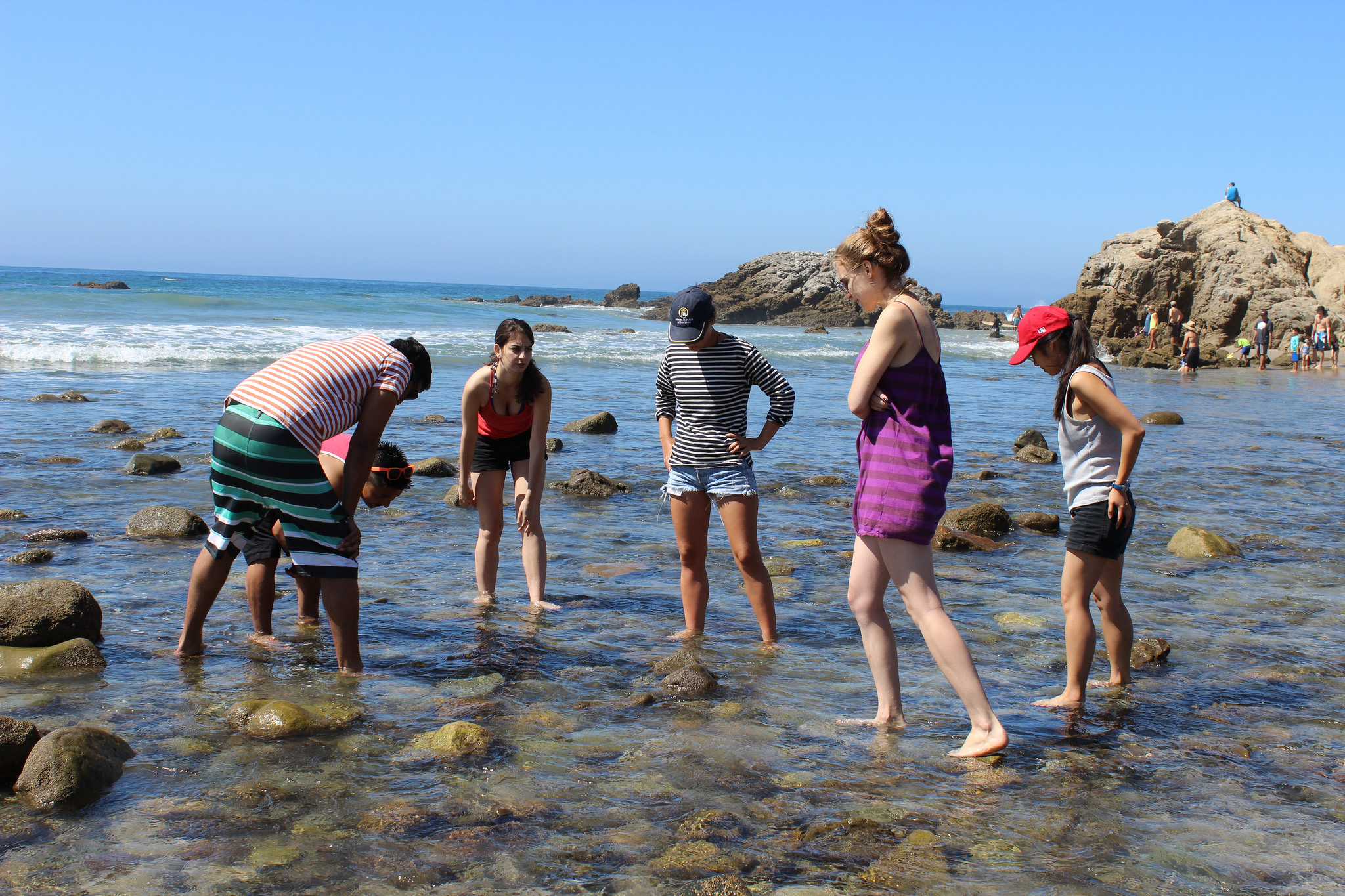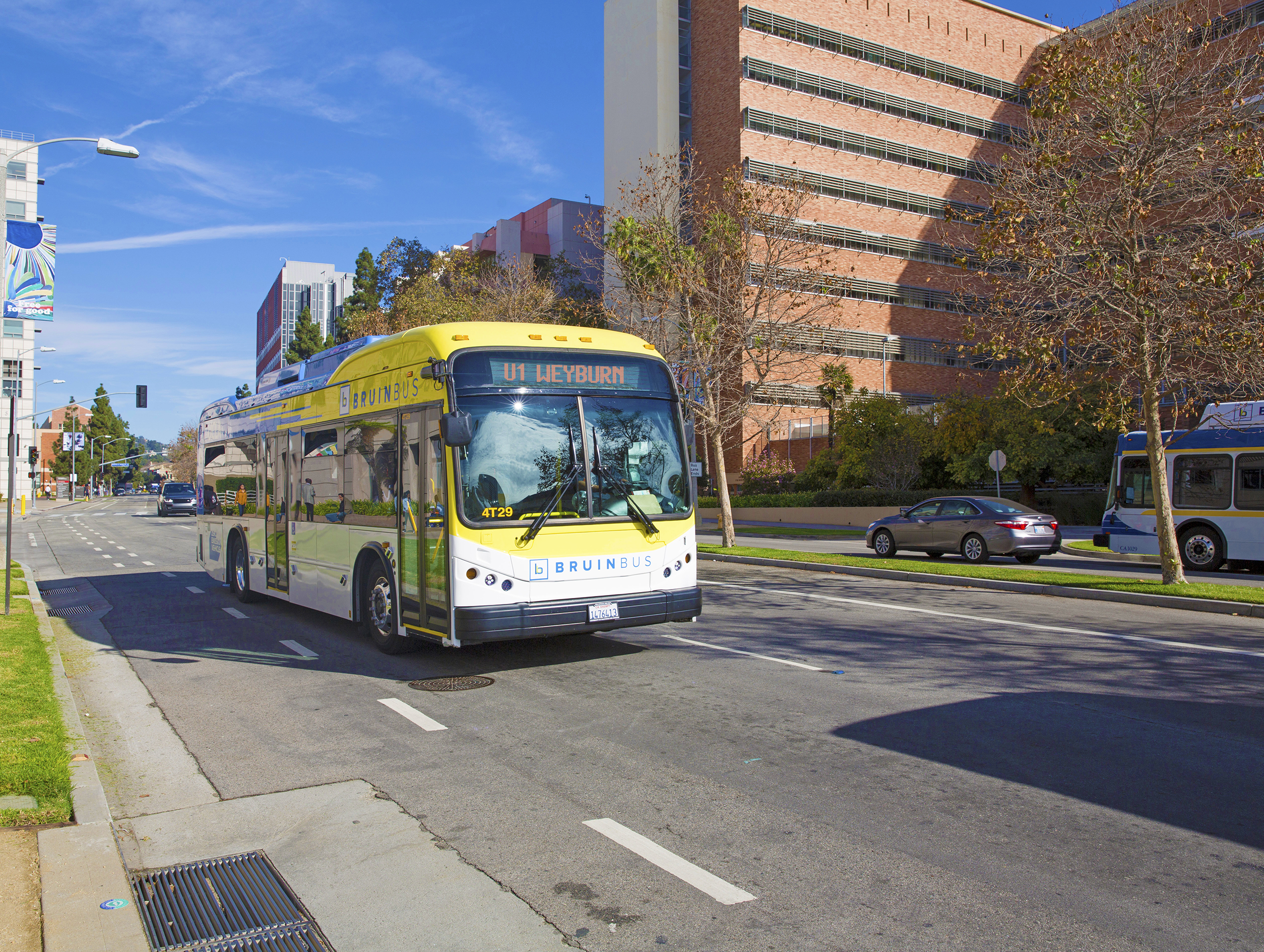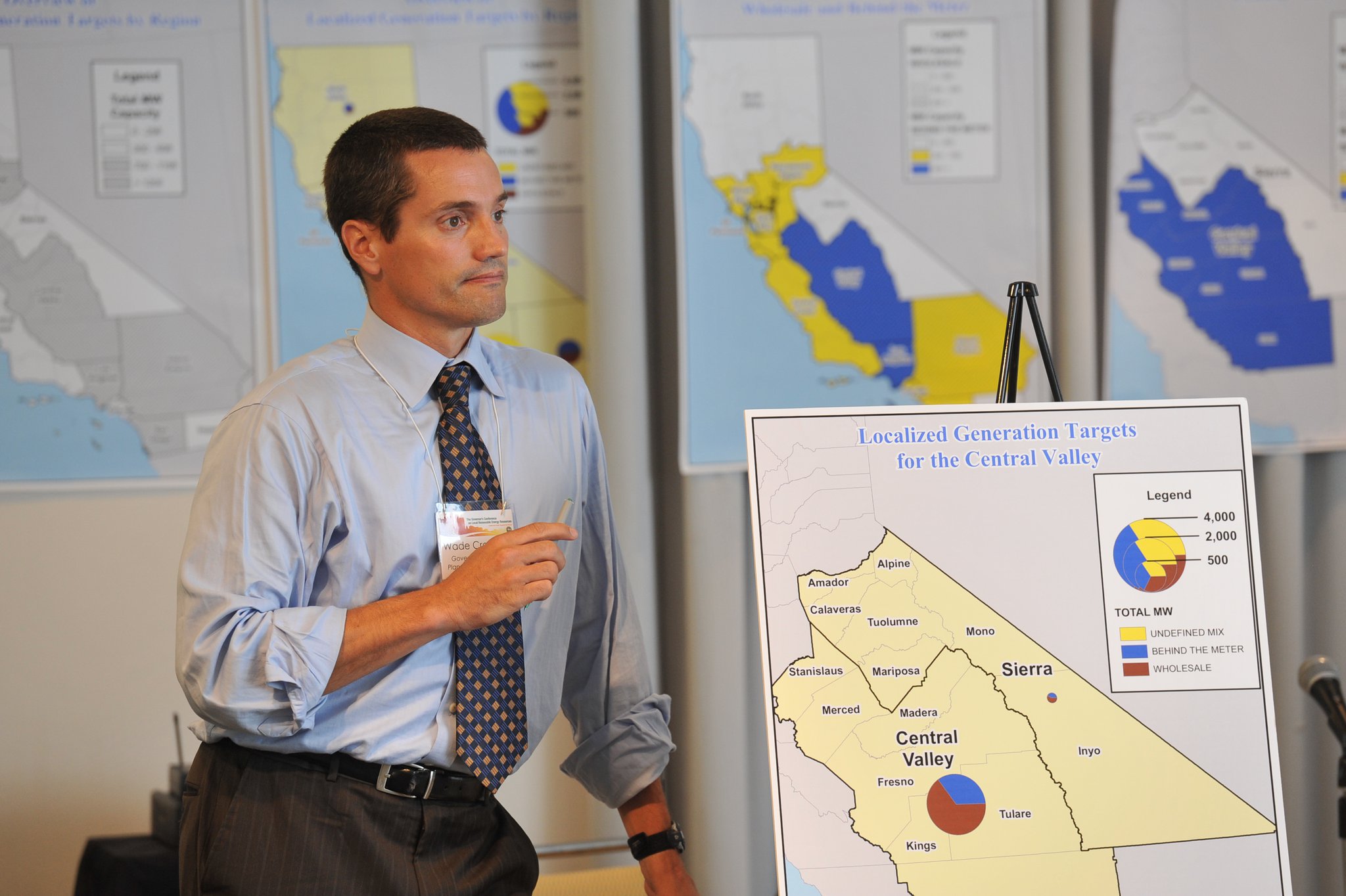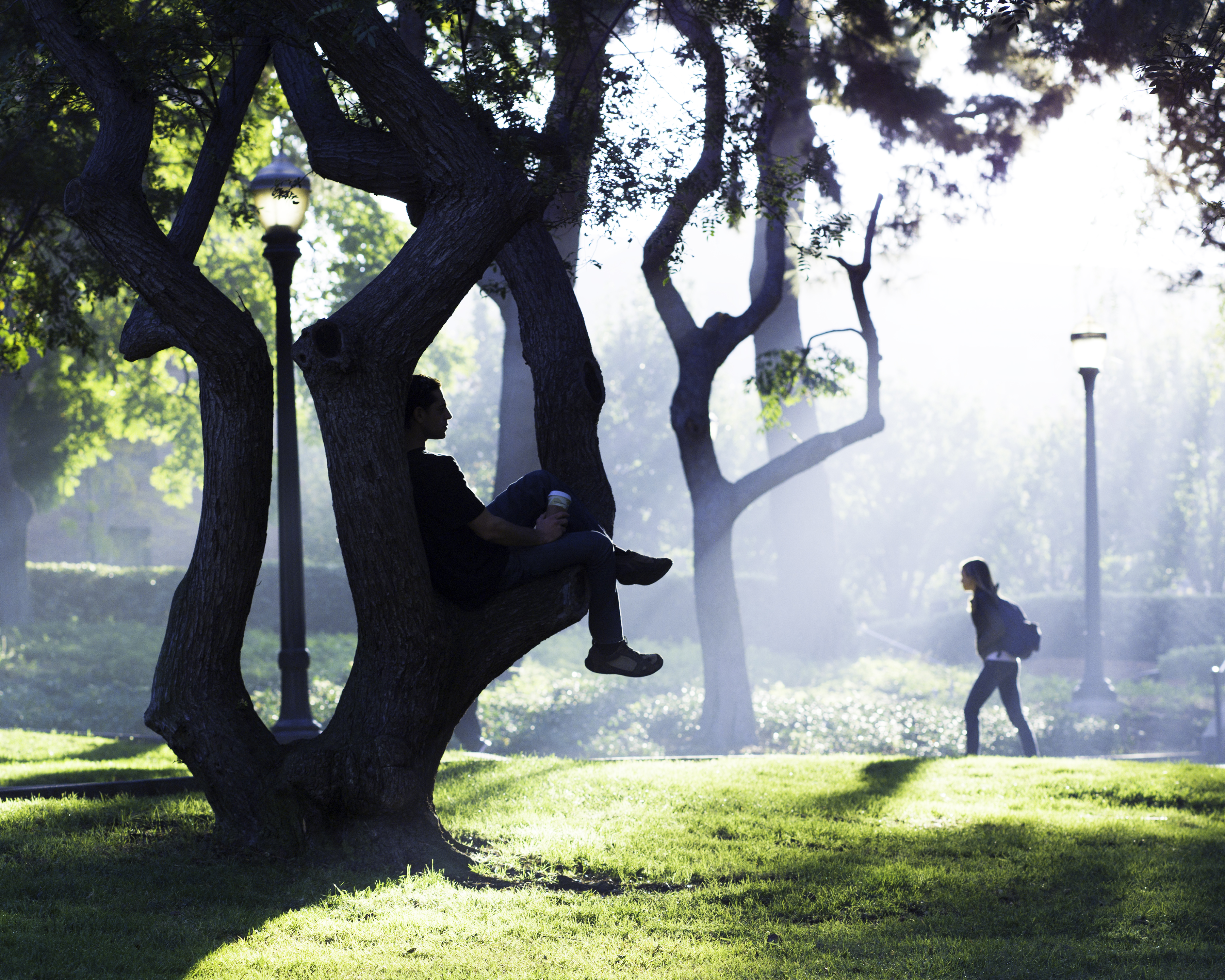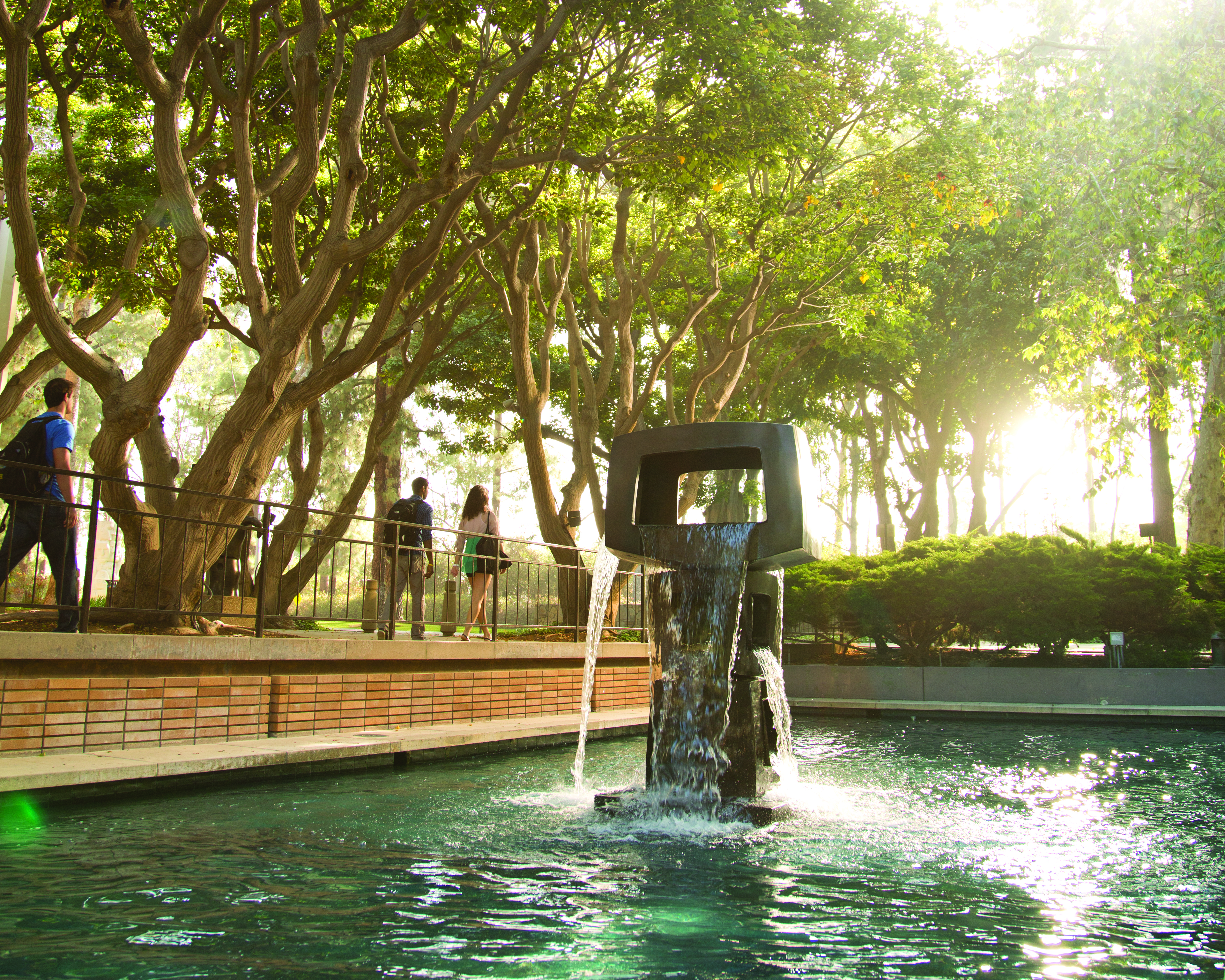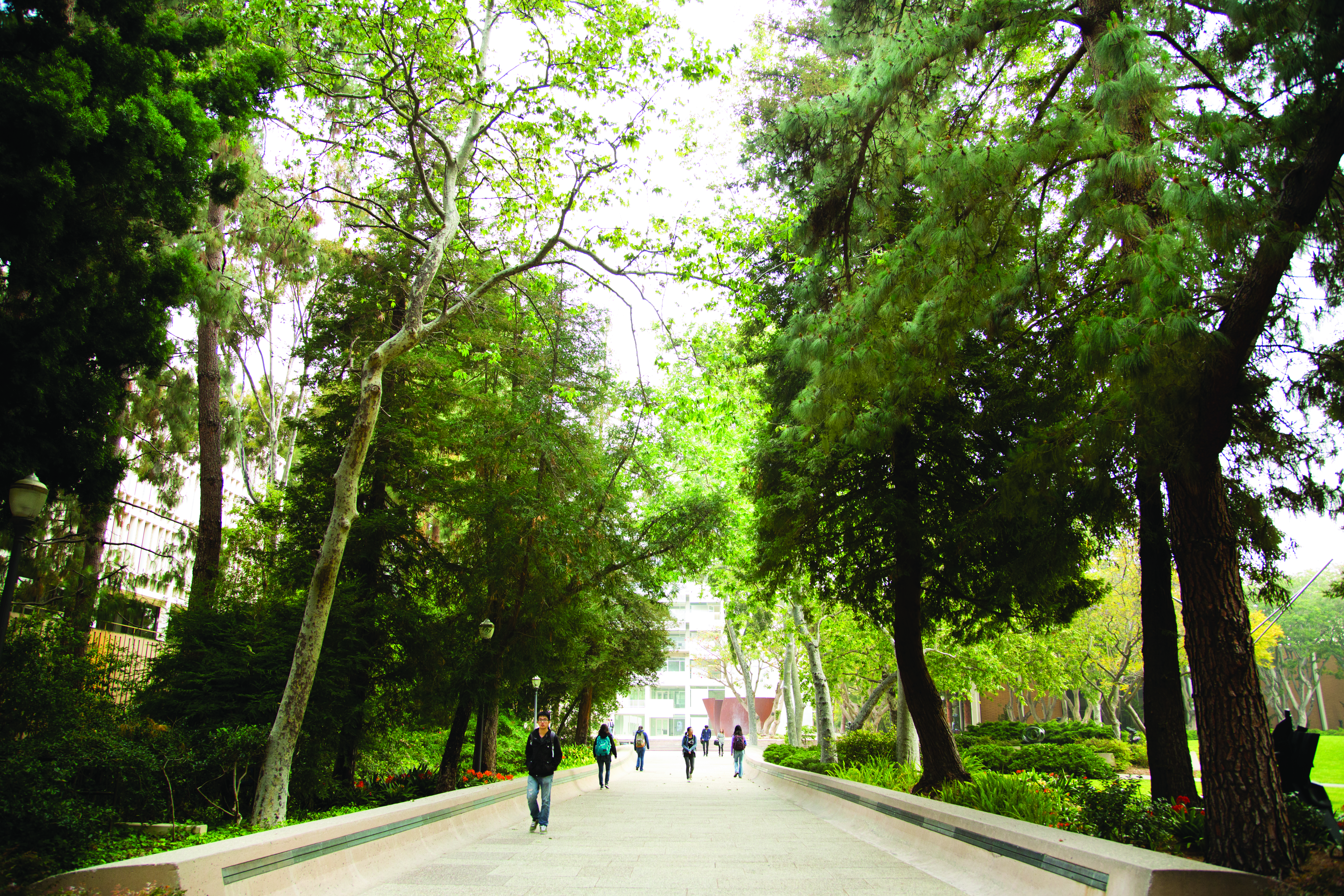
Across the campus and in dozens of different disciplines, UCLA researchers, scholars and students are working together to bring sustainability ideas and opportunities to life. From sweeping plans to combat climate change, activate renewable resources, preserve the ecosystem and advance sustainability science, these experts are teaming up with community and policy leaders to transform Los Angeles into a sustainable success story that will be a model for cities around the world.
DON’T THINK BIG, THINK GRAND
Few research projects in the world have the potential impact of UCLA’s Sustainable LA Grand Challenge, in which dozens of the university’s top researchers and scholars are teaming up to develop sustainability technologies and policies that will result in a region that, by 2050, will run completely on renewable energy. One that only sources local water, with a resilient ecosystem fostering life in a shared environment.
From understanding future climate patterns and maximizing the region’s solar potential, to understanding how gender plays a role in reducing our daily water use and revolutionizing plant and animal conservation management, the Sustainable LA Grand Challenge is helping to remake Los Angeles.
“When UCLA’s faculty and students put their minds to something, they can do anything,” says UCLA Associate Vice Chancellor for Environment and Sustainability Mark Gold, “even transforming Los Angeles into one of the world’s most sustainable megacities
Positive change created here
As humanity urbanizes, the story of how we save the planet will be written by cities like Los Angeles, by multicultural universities like UCLA, and by innovators who break down silos of disciplinary scholarship. UCLA’s Institute of the Environment and Sustainability (IoES) is a big part of that story, using Los Angeles and California as a testbed to create solutions for the broader world. The institute works hand in hand with groups across campus — cooperative efforts that explore solutions to diverse environment and sustainability problems.
Whether it’s the IoES students digging into the waste problem on the Santa Monica Pier, the IoES event that brought business leaders together to explore topics in supply chain sustainability or the senior practicum that takes students off campus and pairs them with clients ranging from the Natural Resources Defense Council to Northrop Grumman to solve real-world problems, IoES faculty and students are moving science into action.
Hitting the moving target
Uber and Lyft are reaching communities in Los Angeles where taxis won’t go. Speaking of L.A., the number of bus and rail trips taken in the city in 2017 was the lowest in more than a decade — not because of ridesharing, but, in part, because people who otherwise would be using public transit are still buying cars. Just two of the most recent insights to spring from the UCLA Institute of Transportation Studies (ITS).
Where else would you look for answers to the world’s transportation problems than to the capital of the car culture? The ITS is one of the leading transportation policy research centers in the United States, studying public transportation, alternative transportation, traffic, urban mobility, ridesharing services like Uber, how transportation affects public health and parking.
Each fall since 1991, ITS researchers co-host the UCLA Lake Arrowhead Symposium, which brings leading transportation, land use and environmental scholars together with top policy and planning practitioners from around the globe for a three-day retreat in the San Bernardino Mountains. In addition, ITS regularly hosts conferences and events in Los Angeles, Sacramento and Washington, D.C., along with dozens of public lectures on a wide variety of topics. And the urban planning program at UCLA is ranked fourth in the nation by Planetizen, due in no small part to ITS support of transportation faculty and students.
New and improved
How can we provide safe, affordable drinking water? What are parklets? What’s a “complete street” and why is it so critical to our sustainable future? These and many other vital questions are asked — and answered — at UCLA’s Luskin Center for Innovation, which unites UCLA scholars with civic leaders to address the most pressing issues confronting our community, nation and world.
Center faculty and staff from a variety of academic disciplines across campus conduct research in partnership with civic leaders who use the knowledge to inform policy and organizational innovations. Civic partners include leaders from government agencies, nonprofit organizations, business associations and the community. For example, a recent Luskin Center study found that, in total, California Climate Investments supports a total of more than 75,000 jobs.
Walking the walk
Of course, building a sustainable city also means having a sustainable campus. UCLA joins the UC system in targeting carbon neutrality by 2025 and has goals in every area of campus operations from water and food to purchasing and transportation. Forty-five “green” LEED certified projects are found on the UCLA campus, including 10 Silver, 20 Gold and 15 Platinum-certified facilities — with another 16 on the way.
We’re also the first public university in California to add fully electric-powered buses to our fleet — not only providing the Bruin community with a better way to travel together, but also setting a global standard for responsible city infrastructure. Additionally, our award-winning sustainable transportation program has saved millions of car trips and reduced the number of Bruins driving alone below the County average. In collaborations with the Semel Healthy Campus Initiative Center we are growing healthy, nutritious food and demonstrating urban agriculture through vertical tower gardens, as well as encouraging active transportation. In addition, UCLA offers almost 600 sustainability courses led by more than 400 faculty members, training the next generation of sustainability problem solvers.
Toward a sustainable tomorrow
What we’ve shared here is just a small part of how UCLA is making tomorrow sustainable. There’s the Emmett Institute on Climate Change and the Environment, one of the nation’s leading law school centers focused on climate change and other critical environmental issues; the university’s partnership with the City of L.A. to form the L.A. Sustainability Leadership Council, co-chaired by Chancellor Gene Block and Mayor Eric Garcetti; and UCLA’s partnership with community leaders and officials to create the first Los Angeles County sustainability plan.
UCLA is where professor and climatologist Alex Hall’s Center for Climate Science predicts future temperatures and precipitation in the L.A. region, and where you’ll find the IoES’ fascinating Laboratory for Environmental Narrative Strategies, an incubator for new research and collaboration on storytelling, communications and media in the service of environmental conservation and equity.
As a public university, UCLA is committed to creating sustainable solutions in energy, water and biodiversity — and to helping to transform the dynamic, diverse metropolis we call home into a decarbonized megacity that improves the quality of life for all residents, all in the face of climate change.
Learn more about UCLA and sustainability at http://sustain.ucla.edu.
